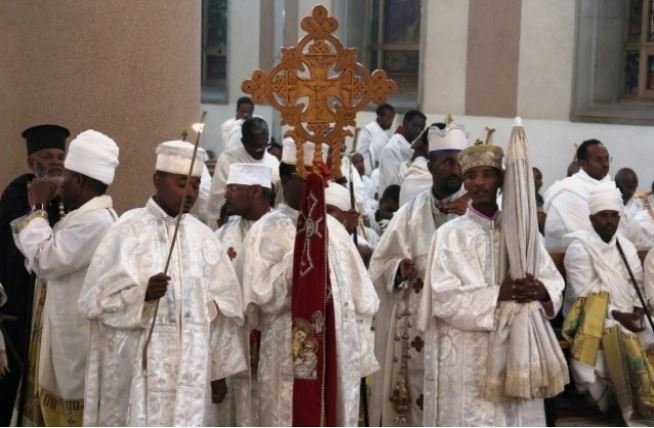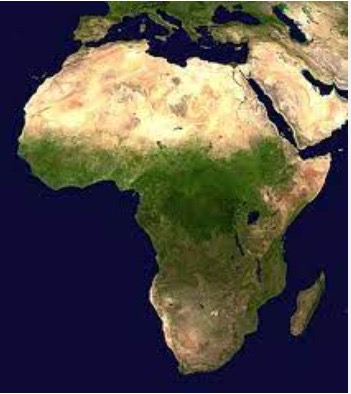Over time, the East African region has exhibited tenacity, grit, and strength. This area has spent most of its history engulfed in political turmoil, power conflicts, disputes over natural resources, and struggles for independence. East Africa is the most populated subregion of Africa, home to 455 million of the estimated 1.369 billion people that call the continent home. Nearly 70% of people here are rural residents, yet the subregion has several sizable cities with more than a million people.
According to the United Nations geoscheme, it is a subregion of Africa comprising 18 countries and two dependencies. The subregion extends from Mozambique in the south to Eritrea in the north. The Indian Ocean is located off the coast of East Africa. Southern Africa is located southwest of Middle Africa and west of East Africa.
The borders that divide Sudan, a country in North Africa, from South Sudan, Ethiopia, and Eritrea, three countries in East Africa, make up the border between East and North Africa. Together with the French territories of Mayotte and Reunion, the three countries that make up East Africa are island nations: Mauritius, Madagascar, and the Seychelles. There are seven landlocked countries in East Africa.
What do we expect from the region’s political landscape in 2024?
A lot can be expected regarding the local political environment. Since most nations in this region have seen waves of civil conflicts since gaining their independence, this also applies to the next national elections. In addition, South Sudan intends to hold elections in 2024. Due to the size of the difficulties that need to be addressed before then, the roadmap chosen in past years must be fully implemented immediately. The required budgetary resources are allocated, the legislative and constitutional framework is defined, and institutions are established, beginning with the council of political parties and the National Electoral Commission.
“I welcome the start of the process to draft the future constitution of South Sudan. It is also essential to create the conditions for the participation of civil society to ensure the credibility of the elections. UNMISS has been mandated to support South Sudan in preparing for these elections. Finally, I welcome the role of regional actors, whose cooperation with the United Nations is crucial.” Statement by Mrs. Nathalie Broadhurst, Deputy Permanent Representative of France to the United Nations and Security Council.
Current election-related anxiety persists among South Sudanese, according to political analyst and former press writer Mekki Elmograbbi of the Sudan Embassy in Washington, DC. This is a result of the experiences people have had with elections in the past. Nevertheless, peace ambassadors in the area assert that for South Sudan to reestablish peace, they must start over and find a solution to the problem’s original cause. All eyes are on South Sudan as they await their election in 2024 to see what might happen to their country.
Salva Kiir Maryadit, the country’s current president, is a candidate for the ruling party (SPLM). Foreign allies expressed concern over the leaders of South Sudan’s decision to extend the transitional government for an additional two years when they signed it in August last year. The parties decided to prolong the nation’s transitional period for the second time.
In addition, Rwanda plans to hold elections on July 15, 2024, to choose the country’s next president and deputies. Paul Kagame, the current head of state, is running for a fourth term. Since the genocide in 1994 ended, Paul Kagame, 66, has been this Great Lakes country’s de facto leader. In the 2003, 2010, and 2017 elections, he was re-elected with more than 90% of the vote. On July 15, 2024, voters nationwide will choose 53 deputies and the President of the Republic from lists put up by political parties or independent contenders.
Twenty more years”
There is now just one candidate who has announced their intention to challenge Paul Kagame in next year’s general elections. In an interview with the Times News, opposition Green Party leader Frank Habineza stated that despite his party’s poor performance in the last elections, he is still prepared for a resurgence in 2024. The Republic of Rwanda is one of the continent’s most stable nations. Despite this, several human rights organisations have criticised the government administration for inciting panic about climate change and suppressing free speech and opposition.
Rwanda’s current position in the Reporters without Borders 2023 World Press Freedom Index is 131st (out of 180 countries). Kagame was just 36 years old when the RPF overthrew the Hutu extremists, claiming they were behind the 800,000 victims of the genocide that occurred between April and July 1994, primarily among Tutsis but also among moderate Hutus, according to the UN. Many of his opponents, including party members, were either assassinated, imprisoned, or sent into exile during his years in office.
Additionally, in the neighbouring nation of Somalia, local elections were conducted in the semi-autonomous territory of Puntland in May of this year, marking the first elections by universal suffrage since 1969. It was praised as a “historic” vote by international organisations like the African Union and several neighbouring states. Somalia is expected to have a better future as it gets ready for the 2024 election, which will support the country’s multiparty, independent, and corrupt-free political system. President Hassan Sheikh Mohammudpromised in March to abolish the intricate indirect system since 1969.
However, President Samia Suluhu Hassan of Tanzania has once again expressed her unwillingness to approve modifications to the supreme law until, at the very least, after the upcoming elections. The nation will hold presidential and legislative elections in 2025 and civic polls in 2024. Nonetheless, Samia asserts that the country needs more time to modify its laws and prepare for tactical or rational elections. According to her, the new constitution will take time to draft and get approved. Tanzania is planning to begin educating and raising awareness among its citizens about the constitution before delving into writing a new one.
The Republic of Kenya, which sits in the middle of the nations that will compete in its election in 2024, will again put itself to the test with this. Kenya’s economy, which is the biggest in East Africa, accounts for more than 40% of the GDP of the continent. Calum Hill, BCIU’s Programme Officer for Africa, states that Nairobi has a generally stable business environment and is frequently used as the regional headquarters for American corporations and a growing number of UN regional offices. Kenya’s fast-expanding economy can be attributed to its populace’s increased digital connectivity and noteworthy position as a regional security player.
Throughout Ruto’s term, the new administration must prioritise information and communications technology (ICT) and security to create a conducive atmosphere for business interests.
Meanwhile, Ruto’s administration will play a significant role in ensuring that the region remains calm amid the many elections lined up for 2024.
With all this lined up for 2024, the East African region is definitely set to have a very busy economy with a lot to watch out for.


